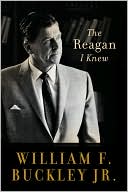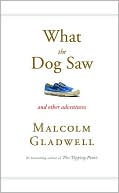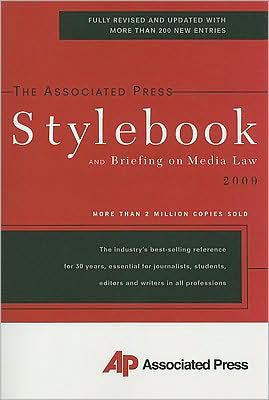Watchdogs of Democracy?: The Waning Washington Press Corps and How It Has Failed the Public
In the course of more than sixty years spent covering Washington politics, Helen Thomas has witnessed firsthand a raft of fundamental changes in the way news is gathered and reported. Today, she sees a growing -- and alarming -- reluctance among reporters to question government spokesmen and probe for the truth. The result has been a wholesale failure by journalists to fulfill what is arguably their most vital role in contemporary American life -- to be the watchdogs of democracy. \ Here, the...
Search in google:
In the course of more than sixty years spent covering Washington politics, Helen Thomas has witnessed firsthand a raft of fundamental changes in the way news is gathered and reported. Today, she sees a growing -- and alarming -- reluctance among reporters to question government spokesmen and probe for the truth. The result has been a wholesale failure by journalists to fulfill what is arguably their most vital role in contemporary American life -- to be the watchdogs of democracy. Here, the legendary journalist and bestselling author delivers a hard-hitting manifesto on the precipitous decline in the quality and ethics of political reportage -- and issues a clarion call for change. Thomas confronts some of the most significant issues of the day and provides readers with rich historical perspective on the roots of American journalism, the circumstances attending the rise and fall of its golden age, and the nature and consequences of its current shortcomings. The book is a powerful, eye-opening discourse on the state of political reportage -- as well as a welcome and inspiring demand for meaningful and lasting reform. Publishers Weekly Thomas, who has been covering Washington for more than 60 years, is displeased with the way in which the government tries to manipulate the news as never before; the press, diminished and monopolized by big business kowtowing to advertisers is "supine"; and dishonesty is everywhere. Thomas believes in a healthy adversarial challenge between government and press, but her explanation of her stance sometimes veers off track. She characterizes the nine presidents (beginning with Kennedy) she has covered, each of whom tried to spin the news his own way (Nixon, for a while, resorted to total blackout). Thomas dates the ever widening "credibility gap" back to the Vietnam War under Johnson. By this time, message management had reached the point of "outright propaganda." Readers will be entertained by her definition of the terms "background" and "off the record" and the difference between a "leak" and a "plant." But Thomas sees a bright side: she applauds trenchant political cartoonists and believes that the active public interest expressed in Internet blogs may help create transparency. (June) Copyright 2006 Reed Business Information.
1Journalism - a most honorable profession12Eruptions of corruption133Presidents and reporters - never the twain shall meet264Press secretaries - in the bull's-eye365Spinning the news576Hail to the heroic leakers and whistle-blowers - and the journalists who protect them877Newspapers are a business, too1128The FCC - fair and balanced?1249Lapdogs of the press13510Foreign correspondents in Iraq - deja vu all over again!15311The greatest American journalists of our times169
\ Publishers WeeklyThomas, who has been covering Washington for more than 60 years, is displeased with the way in which the government tries to manipulate the news as never before; the press, diminished and monopolized by big business kowtowing to advertisers is "supine"; and dishonesty is everywhere. Thomas believes in a healthy adversarial challenge between government and press, but her explanation of her stance sometimes veers off track. She characterizes the nine presidents (beginning with Kennedy) she has covered, each of whom tried to spin the news his own way (Nixon, for a while, resorted to total blackout). Thomas dates the ever widening "credibility gap" back to the Vietnam War under Johnson. By this time, message management had reached the point of "outright propaganda." Readers will be entertained by her definition of the terms "background" and "off the record" and the difference between a "leak" and a "plant." But Thomas sees a bright side: she applauds trenchant political cartoonists and believes that the active public interest expressed in Internet blogs may help create transparency. (June) Copyright 2006 Reed Business Information.\ \ \ \ \ Library JournalThe inimitable Thomas (Dateline: White House)-"dean of the White House press corps"-blends memoir with American political and media history to deliver a pointed critique of the Bush administration's war in Iraq and the devastating failure of the press to perform its duty to "follow the truth, without fear or favor, wherever it leads them." Having spent 60 years as a journalist, during which time she covered nine U.S. presidents, Thomas enjoys an unparalleled vantage point from which to recount the highs and lows of her profession and document the myriad ways it has changed. The consolidation of media ownership, the quest for profits, and the scandals and ethical lapses of reporters and publishers have all contributed to the current low public opinion of the news media. But the failure of reporters to ask tough questions in the face of unprecedented governmental efforts to manage information in the post-9/11 world has done a tremendous disservice to the public and a personal disappointment to Thomas, who calls for a return to fair, honest reporting that delivers the facts without spin. Recommended for public and academic libraries.-Donna L. Davey, New York Univ. Lib. Copyright 2006 Reed Business Information.\ \ \ Kirkus ReviewsThe octogenarian doyenne of the White House press troupe (long privileged to end press conferences with "Thank you, Mr. President") reports on the current state of journalism and finds the profession remiss in many substantial ways. The respected newsman Elmer Davis once complained of "the false objectivity that . . . lets the public be imposed upon by the charlatan with the most brazen front." Half a century later, Thomas (Thanks for the Memories, Mr. President, 2002, etc.) makes the same complaint, along with some other pertinent charges. She speaks of lying staffers, inventors of facts and arrant plagiarizers, of planted stories and purchased "news," of ranting analysts and "reporters" bearing spurious credentials. Teletypes and scoops by telephone may be history, but managed stories abound, and spin doctors thrive even when talented investigative reporters and muckrakers are most needed. In addition to the current general malaise in the news business, Thomas recalls the many presidents she covered, the press secretaries she bothered, the political scandals and the political wives she encountered. This is history lite, instructive to those (journalism students in particular) who may never have heard of Watergate or the Bay of Pigs. The text includes typical transcripts of Thomas hassling a White House spokesman or two. There's a discussion of the defunct FCC "fairness doctrine," thoughts on the problem of "embedded" war coverage and an analysis of the current law of privilege to protect sources. With a salute to great journalists of the past century and accounts of harmless Air Force One and East Wing chitchat, there are no revelations here that would raise a flag at the NSA. Theauthor's most imperative message, after all, is that reporters and politicos are natural enemies-or should be. The answer to the title: Journalists, the putative watchdogs of democracy, are becoming the lapdogs of government. Thank you, Mr. President.\ \ \ \ \ From the Publisher"Helen Thomas delivers a scathing rebuke to the media in her classic, tell-it-like-it-is style.... Thomas's book sounds the alarm to the media and the public."\ — The Christian Science Monitor\ "Watchdogs of Democracy? encourages reflection on the roots of American journalism, its mission, and its uncertain future."\ — Associated Press\ "Thomas is as engaging as she is passionate in this...refresher course on why we must support a responsible, active, and free press."\ — Booklist\ \ \








